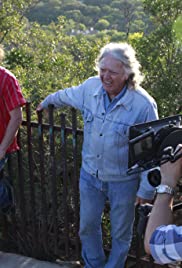
In 1985, former oil rig worker Richard Linklater began a film screening society in Austin, Texas, that aimed to show classic art-house and experimental films to a budding community of cinephiles. Eventually incorporating as a nonprofit, the newly branded Austin Film Society raised enough money to fly in their first out-of-town filmmaker: James Benning. Accepting the invitation, Benning met Linklater and the two began to develop a personal and intellectual bond, leading to many future encounters. Starting in the 1960s, Benning had been creating low budget films mostly on his own, while Linklater had just begun to craft his first shorts. The filmmakers have remained close even as their careers have diverged. After the cult success of Slacker, Linklater went on to make films with Hollywood support. Benning, meanwhile, has stayed close to his roots and is mainly an unknown figure in mainstream film culture.
You May Also Like

Shanghai is one of the biggest cities in the world and is rapidly expanding, but has it hung on to its culinary roots? Rick Stein wants to find out.
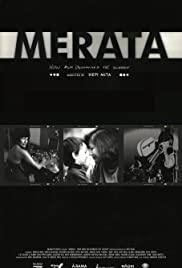
New Zealand film archivist Heperi Mita traces the cinematic legacy of his mother and trailblazing Maori filmmaker Merata Mita.
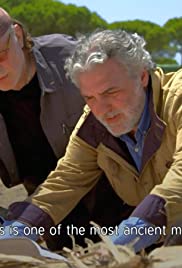
James Cameron and Simcha Jacobovici go on an adventure to find the lost city of Atlantis by using Greek philosopher Plato as a virtual treasure map.
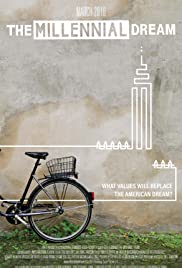
The American Dream Is the cultural motif that has inspired North America for the last century. Work hard, save, sacrifice and you will get ahead. America offers the freedom of upward mobility. But over the last decade the American Dream has been called into question. For many, it no longer seems to be working. The MILLENNIAL DREAM is a feature length documentary that explores the values that may replace the cultural motif known as The American Dream. As the Millennial generation becomes the most significant portion of the work force what will change about what we want from our jobs, what education will look like, what kinds of companies will succeed in the new economy and what kinds of living communities will be desired? And what can cities and regions do to attract the new economy? Interviews with experts such as Seth Godin and the personal reflections of young workers will stir debate and dialogue around what might emerge as the Millennial Dream.
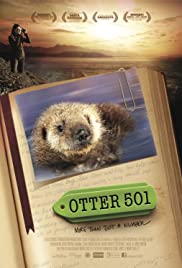
A storm grows, a sea otter pup is separated from her mother, and a young woman bound for adventure blows in to town. On a wild and windswept beach these lives collide and an entire species’ survival gets personal. Through Katie’s eyes you will see our playful pup, otter number 501, get an amazing second chance at life in the wild. As the two learn to navigate the opportunities and risks of life without anchor we see the incredible efforts people have undertaken to save sea otters from the brink of existence. Framed against the strikingly beautiful Monterey Bay coastline, the last stronghold of these iconic animals, Katie discovers just how serious this threat remains. Their adventure, unexpected as it was, illustrates what we can do to contribute to the growing movement to protect the southern sea otter…and ourselves.

A portrait of Ennio Morricone, the most popular and prolific film composer of the 20th century, the one most loved by the international public, a two-time Oscar winner and the author of over five hundred unforgettable scores.

Produced and directed this documentary for BBC in the 1980’s, about David Gulpilil, acclaimed Australian Aboriginal actor, dancer and musician. The film shows how Gulpilil is always working to bridge the gap between the tribal Aboriginal and Western worlds. He divides his time between a traditional tribal lifestyle and his artistic work, which has included major film roles, collaboration with contemporary dance and music groups and teaching Aboriginal dance and culture. Bill and David travel to Hollywood where David was the most popular Australian in the world at that time, with FOUR films playing in America – WALKABOUT, STORM BOY, THE LAST WAVE and MAD DOG MORGAN. After relating to both the black and native American cultures and filming a quick scene for a big Hollywood picture, he pines to head back through the Outback to his beloved Arnhem Land. Edited by Simon Dibbs and shot by Ray Henman.
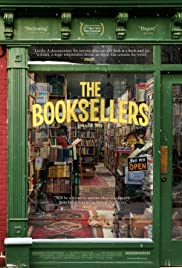
What once seemed like an esoteric world now seems essential to our culture: the community of rare book dealers and collectors who, in their love of the delicacy and tactility of books, are helping to keep the printed word alive. D.W. Young’s elegant and entertaining documentary, executive produced by Parker Posey, is a lively tour of New York’s book world, past and present, from the Park Avenue Armory’s annual Antiquarian Book Fair, where original editions can fetch hundreds of thousands of dollars; to the Strand and Argosy book stores, still standing against all odds; to the beautifully crammed apartments of collectors and buyers. The film features a litany of special guests, including Fran Lebowitz, Susan Orlean, Gay Talese, and a community of dedicated book dealers who strongly believe in the wonder of the object and the everlasting importance of what’s inside.
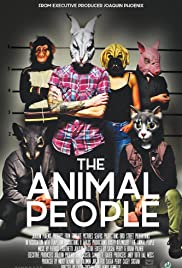
An unprecedented journey inside a radical animal rights campaign that shook multinational corporations to their core and led to the first-ever indictment of six young American activists for terrorism.

THE FIRST MONDAY IN MAY follows the creation of The Metropolitan Museum of Art’s most attended fashion exhibition in history, “China: Through The Looking Glass,” an exploration of Chinese-inspired Western fashions by Costume Institute curator Andrew Bolton. With unprecedented access, filmmaker Andrew Rossi captures the collision of high fashion and celebrity at the Met Gala, one of the biggest global fashion events chaired every year by Vogue editor in chief Anna Wintour. Featuring a cast of renowned artists in many fields (including filmmaker Wong Kar Wai and fashion designers Karl Lagerfeld, Jean Paul Gaultier and John Galliano) as well as a host of contemporary pop icons like Rihanna, the movie dives into the debate about whether fashion should be viewed as art.

The director presents takes and scenes filmed on location in Africa for a film-that-never-was, a black Oresteia.

Singer, songwriter, business man, family man, civil rights activist: Sam Cooke transcends all barriers of race, faith and talent. This first-ever biography of the definitive soul singer looks at his extraordinary career and personal life – from his gospel-singing roots through his R&B and pop music career.